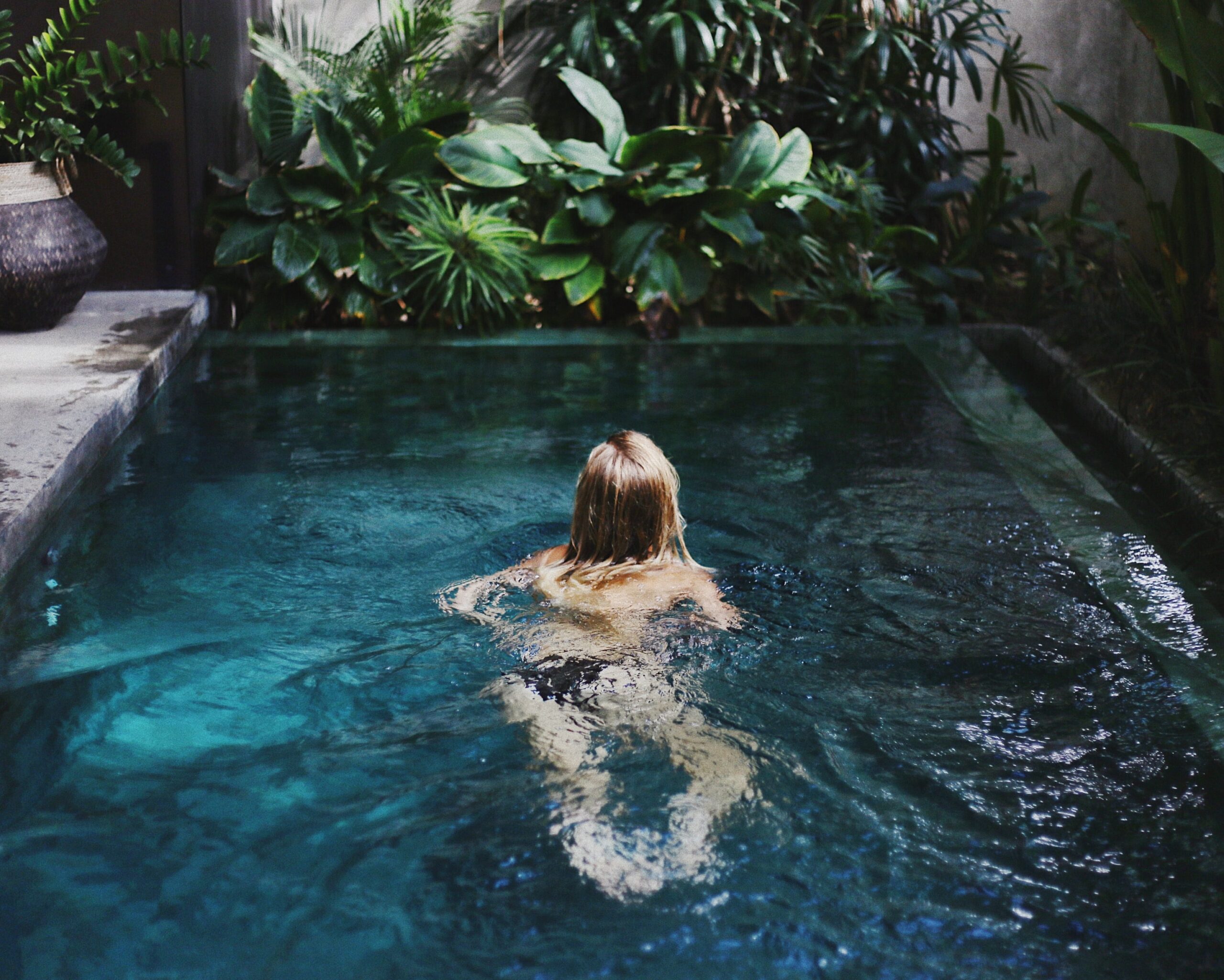How hospitality brands can harness the power of nature
By Bernice Fielding
July 12, 2020
There is very little that we can predict with certainty in a post-COVID-19 travel and tourism era, except that resilient organizations that are readily adapting to a radically changed environment – with different customer expectations – will have an easier time capturing and/or retaining market share. That adaptation would not be complete without considering nature as an integral part of hospitality and design, opening up new possibilities that may have once been overlooked.
As horticulturists and landscape designers, we can help to prepare the hospitality industry for the emergence of travelers who will begin to test the waters as they weigh the risks and opportunities for themselves. Regardless of individual guest profiles, the physical, emotional and psychological toll of a global pandemic will likely strengthen pre-existing travel trends that favor health and wellness, authentic cultural experiences, and science-based design that connects to nature, as long as safety precautions prevail.
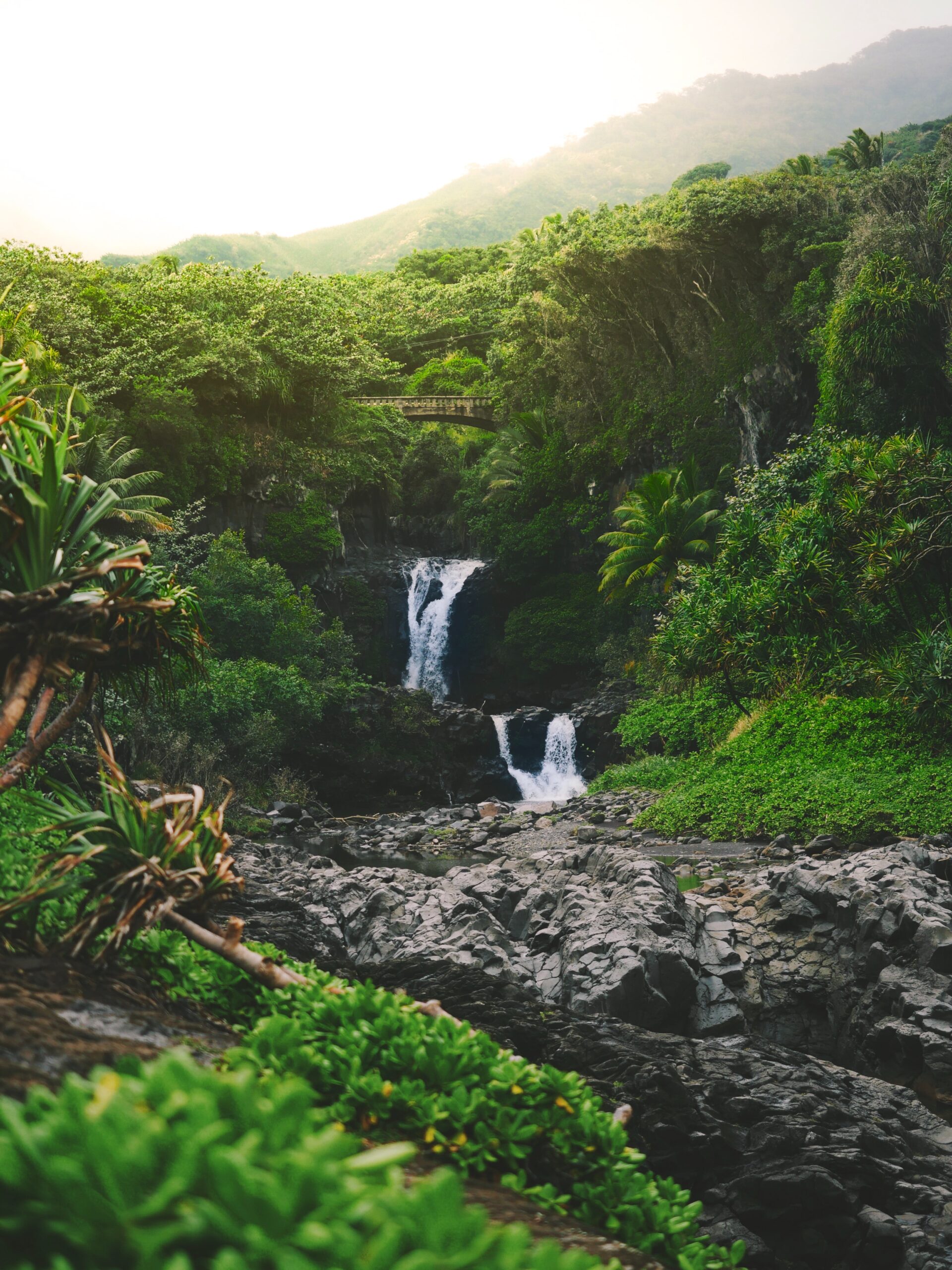
Hiking on the east side of Maui by Nathan Ziemanski
We’ve always understood the healing power of nature. For example, according to a study published in 2016 in Environmental Health Perspectives, women who are surrounded by greenery had a 12% lower mortality rate. A possible health link between being outside and potentially mitigating the risk of infection gives us pause to reconsider what that means for travel destinations and, in particular, what offerings will be even more appreciated by guests if they can access them without leaving the resort property.
Here are five recommendations for how a hotel or resort can utilize its own outdoor spaces to provide culturally relevant and safe options for relaxation and recreational activities.
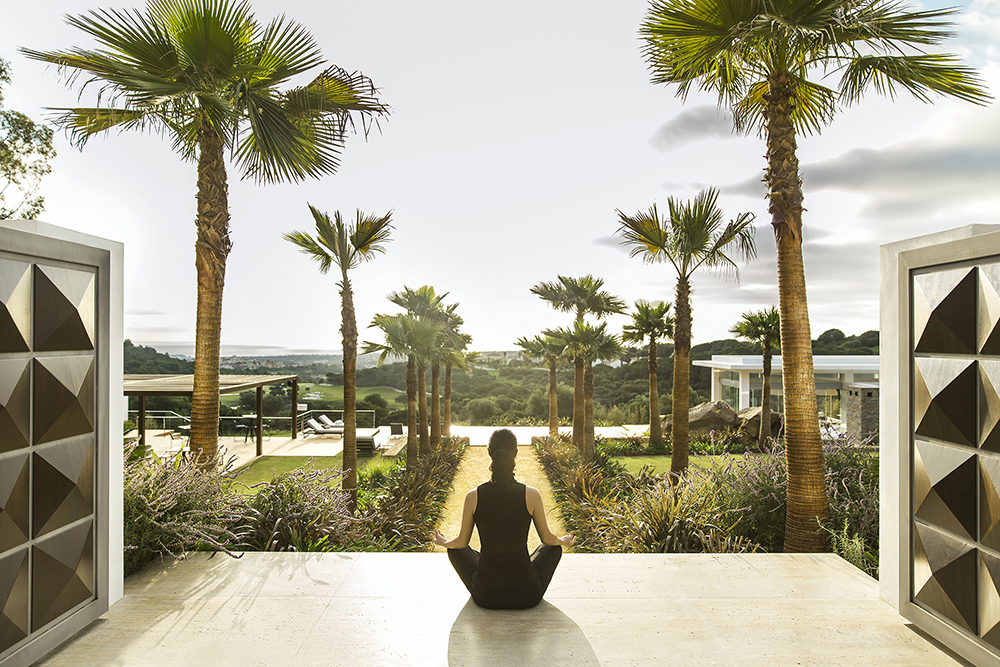
El Mirador, Sotogrande, by WATG
1. Create outdoor Zen-like experiences
Therapeutic gardens – spaces designed to facilitate interaction with the healing elements of nature, sensory gardens and the opportunity for activities such as shinrin-yoku, or forest bathing, even on a small scale, can all provide healing and calming responses that are restorative and conducive to emotional, physical and mental well-being. For example, in Hawaii, a therapeutic garden could include herbs and plants that are used for healing by cultural practitioners for lomilomi massage and lā‘au lapa‘au – an indigenous practice that relies on native plant life and spiritual beliefs to treat illnesses and injuries. Guests are provided an experience, a connection to the culture, the local environment and a chance to immerse themselves in nature. Large spaces are not required, even a small area can be adapted as long as it is designed with natural elements and provides an opportunity for quiet contemplation.
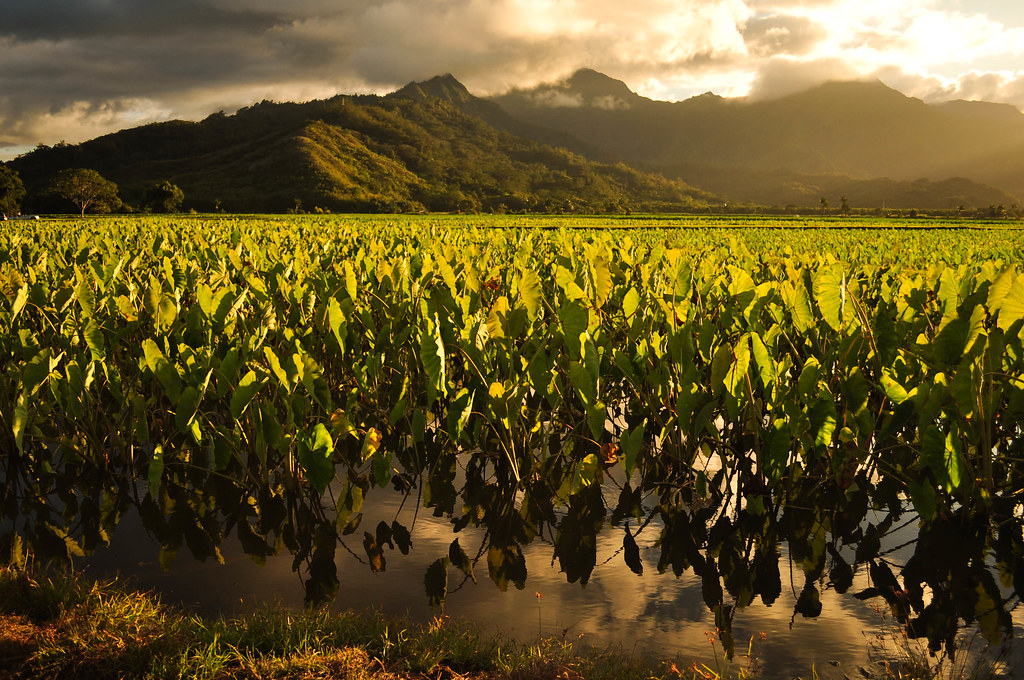
A lo‘i (taro patch)
2. Bring ecotourism onto the grounds
Ecotourism helps minimize impact on the environment, building upon environmental and cultural awareness in addition to respect for the land. For guests who want to delve into understanding the intersections between natural environments and their relation to the culture of the place they are visiting, hotel landscapes can reflect a high level of respect for the ecology of an area by incorporating endemic elements, such as native plants and trees that foster an authentic and ethnobotanical ecosystem. Hotels can elevate this idea by dedicating space for mini-demonstration areas or a fully immersive experience, such as a small lo‘i (taro patch), where guests can learn and/or participate to the extent possible.
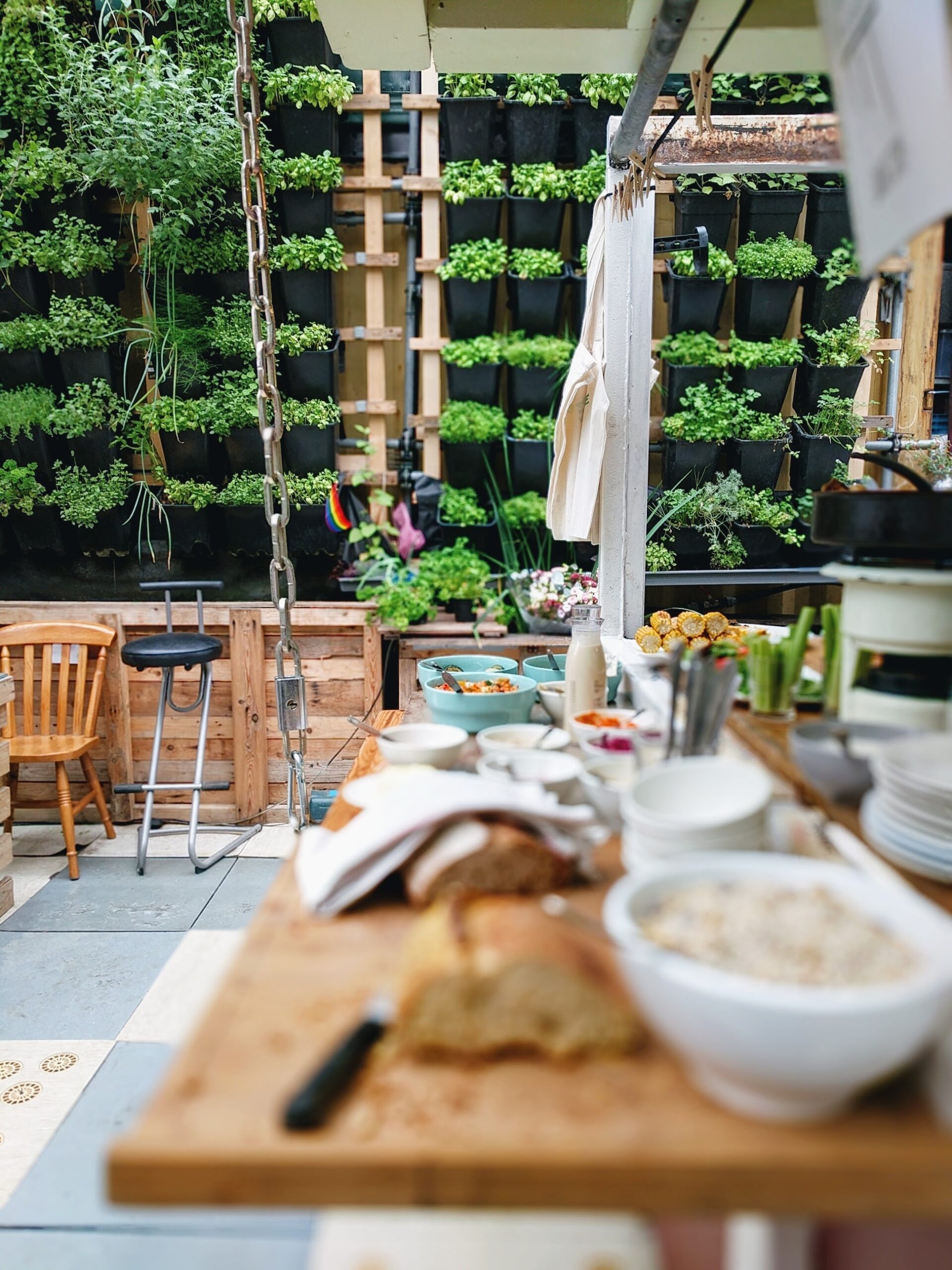
A farm-to-table dining experience in Amsterdam by Emily Victor Portenart
3. Integrate farm-to-table and edible landscape design
Depending upon the size of a property and available areas, creating an opportunity for guests to have more space and dine in an outdoor environment – surrounded by natural elements – will reduce the pressure to accommodate diners within indoor areas, making guests feel safer. In addition, food and beverage departments have a chance to capitalize on engaging with guests prior to sitting down at a meal – during the growing, harvesting or preparation of food, which have gained new popularity. There has been a resurgence of urban gardening and an interest in cooking and learning about food sources closer to home. Growing local food – such as fruit trees, culturally significant plants, a roof-top edible garden or even a small herb garden. Educating through signage to showcase locally grown ingredients or offering cooking demonstrations can significantly elevate the guest experience and deepen guests’ understanding and connection to food as part of the local culture. If a hotel or resort is located in proximity to a farm, consider forming partnerships for individual, family or same group excursions that would allow guests to participate in planting or harvesting.
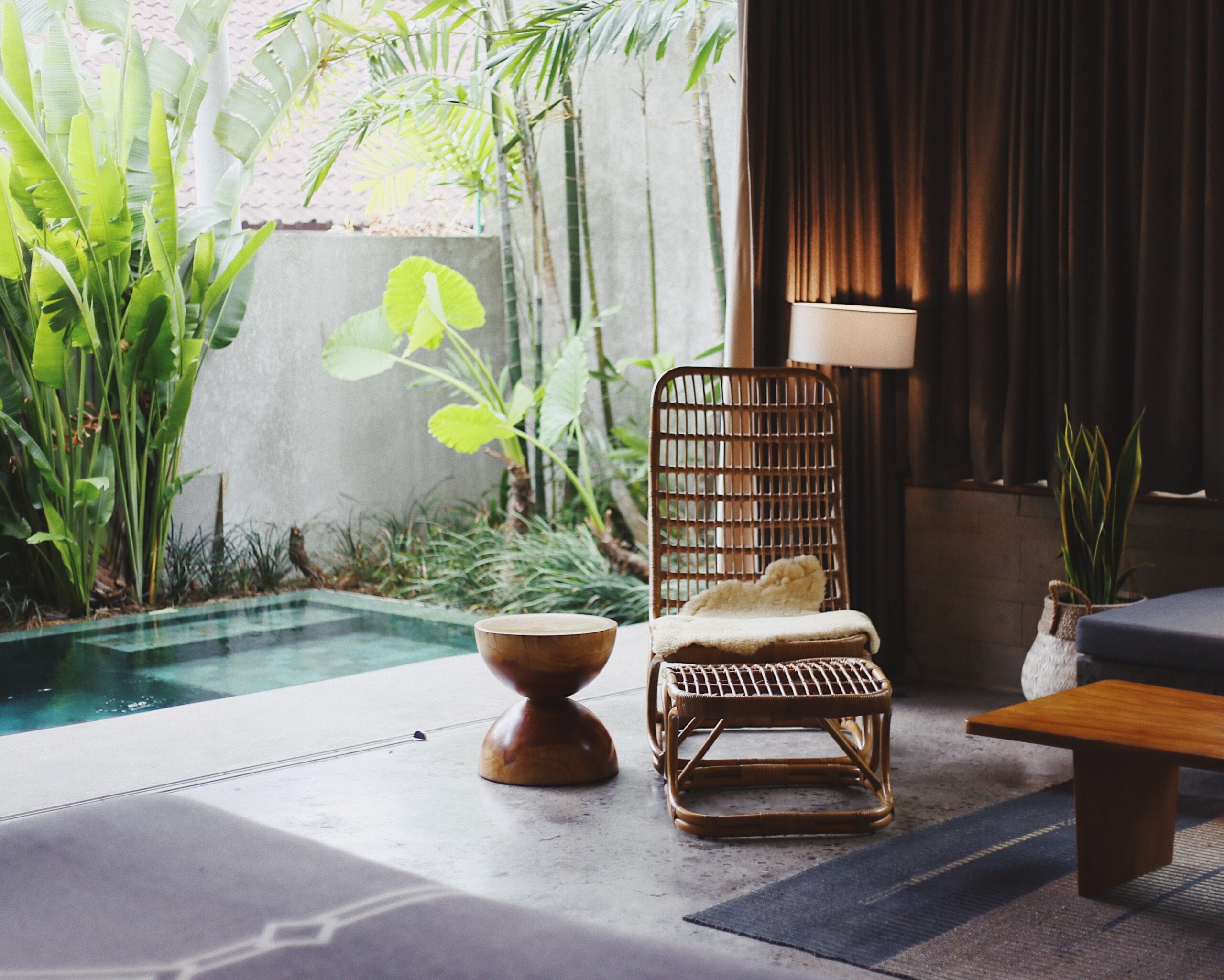
Tropical spa by Taylor Simpson
4. Re-imagine spa treatments
Spas may be the most difficult area for resort guests to re-patronize. Traditionally thought of as an indoor experience, many spas already offer some services in a private enclosed outdoor villa or cabana, but this is the ideal time to determine what additional natural assets can be made accessible to provide a truly outdoor spa experience. Create spaces that offer cultural healing practices that are unique to a destination, help decrease stress and utilize what nature offers to heal us. Examples of this would be a private outdoor spa experience in either natural biofiltration plunge pools or individual tide pools protected and separated by rocks that are planted with healing herbs. These experiences can be enhanced by specialized spa sets that utilize locally sourced and naturally occurring therapeutic bath salts and aromatherapy oils or rubs made from indigenous plants and flowers – that are tailored to a guest’s needs and optimize experiences that will be new to most people.
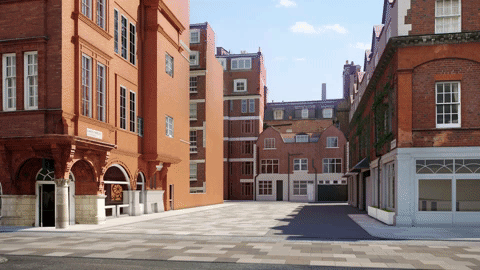
WATG’s Green Block, visualized by the London Landscape Architecture team
5. Expand opportunities to exercise in nature
Nature helps us to heal and can be a contributing factor for our mental and physical well-being. Studies have shown that exercise conducted outdoors relieves stress, alters temperament as well as enhances physical and psycho-social well-being. Though some guests may be comfortable continuing to use group exercise facilities with safety modifications, and others may opt to do this in the privacy of their rooms, hotels can expand outdoor options to include walking paths, bicycle rentals or green spaces that can host exercise classes outdoors – everything from tai chi, yoga and core strength to cultural dance classes. These green spaces could be separated as needed by portable natural elements such as our WATG Green Block and would add to the atmosphere but also allow for social distancing and privacy.
It’s an ideal time for the design or renovation of resorts and hotels to consider incorporating as much of the natural environment as possible. In many cases, a single but strategically designed area can be repurposed to accommodate multiple uses and remain or become a new revenue producing space. What do these recommendations have in common – prioritizing health, integrating nature and providing opportunities for safe and meaningful outdoor experiences for guests who want to opt out of mass gatherings or long commutes in an enclosed vehicle. The future is now. The hospitality industry has innovated and evolved for decades and will do so again to graciously and mindfully welcome guests and visitors yearning to travel again.
ABOUT THE AUTHOR
Bernice Fielding is a horticulturist, arborist, teacher, garden writer and landscape designer. Born in Singapore and based in Honolulu, Bernice has spent the majority of her life abroad – developing a unique understanding of the role plants play in cultural sensitivity and environmental resiliency. Bernice joined the WATG Honolulu team as Project Manager in late 2019.
Latest Insights
Perspectives, trends, news.
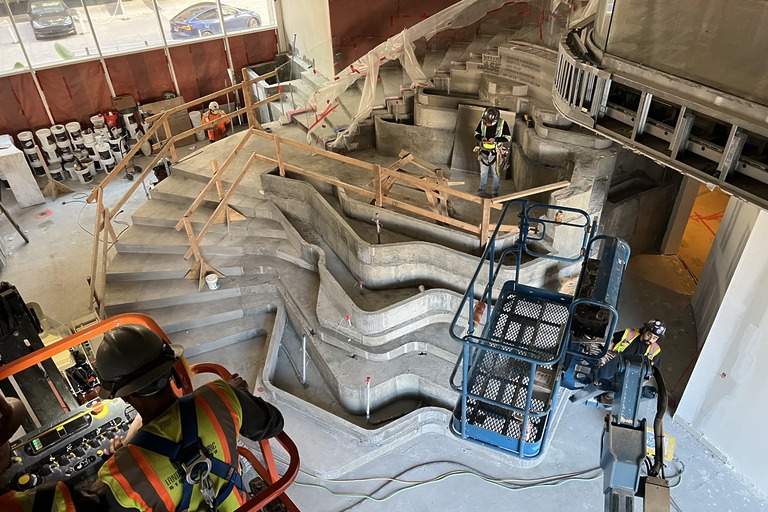
- Design Thinking & Innovation
The Reality of Construction: Architecture in Practice
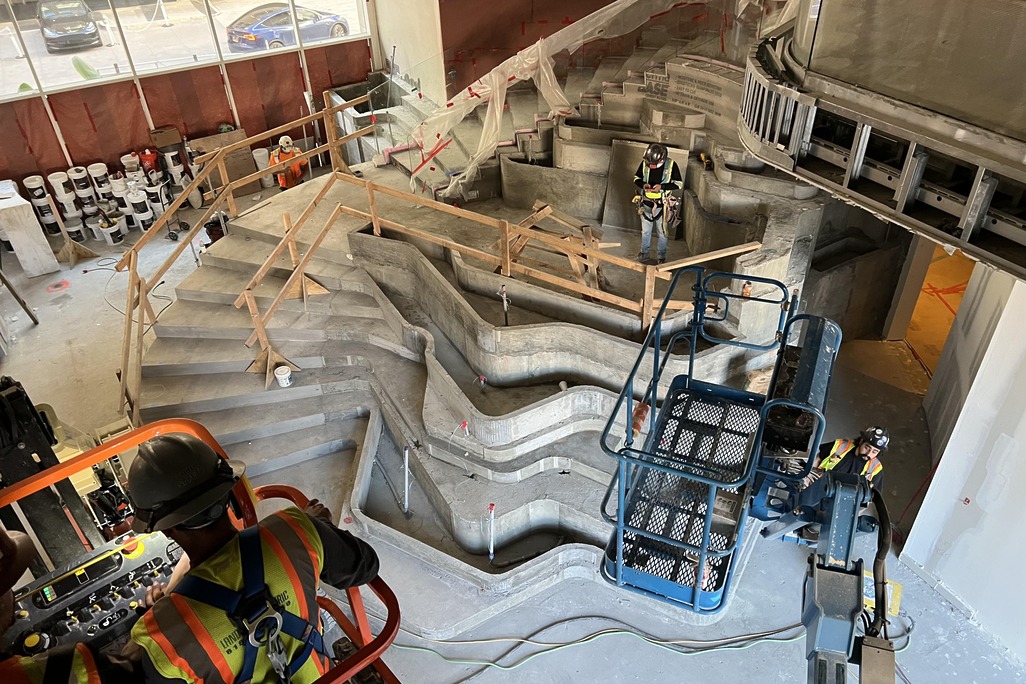
- Design Thinking & Innovation
The Reality of Construction: Architecture in Practice

- Sustainability
Designing The Hotel of the Future

- Sustainability
Designing The Hotel of the Future
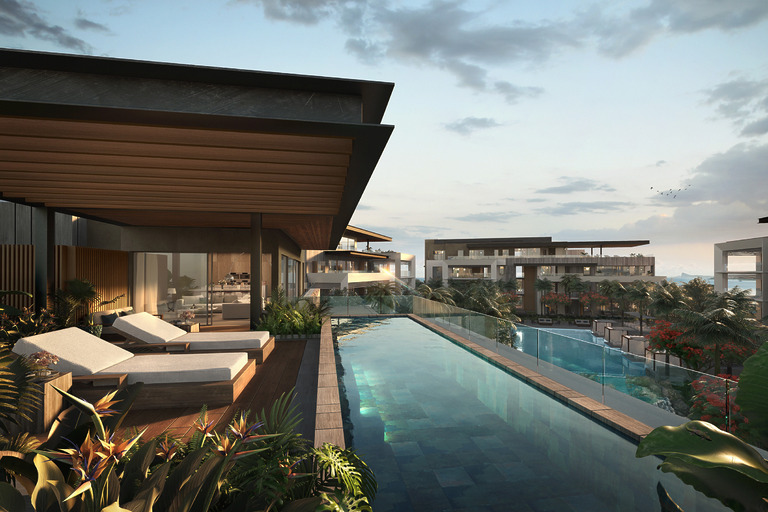
- Residential
Mont Choisy La Reserve: Blending Urban Energy and Tranquil Biodiversity
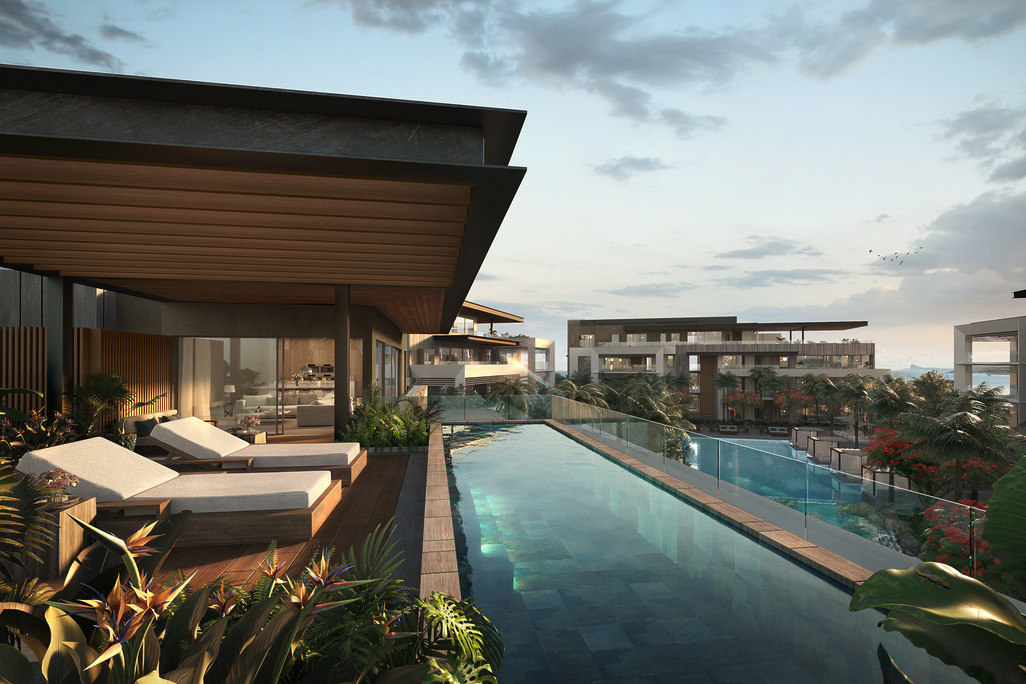
- Residential
Mont Choisy La Reserve: Blending Urban Energy and Tranquil Biodiversity

- Case Study
In Conversation: Douglas Kim, General Manager of JW Marriott Jeju

- Case Study
